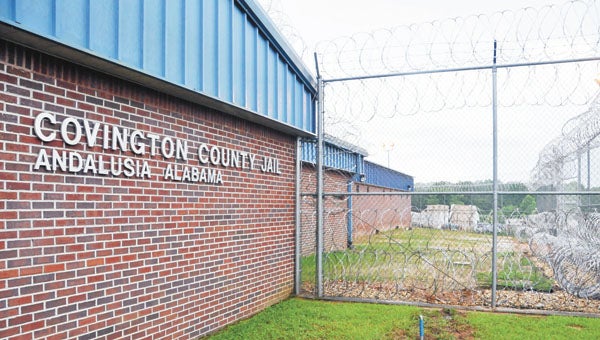Sheriff concerned over reform
Published 12:04 am Saturday, June 20, 2015
For the last few weeks, the Covington County jail has been averaging 40 more inmates than the jail’s capacity, Sheriff Dennis Meeks said.
Meeks, like other sheriffs in the state, is concerned about a potential shift of inmates from the state prison system to the county jails once the prison reform bill takes effect.
“It doesn’t go into effect until January,” Meeks said. “I hope it doesn’t back up significantly into the county jails. If it does, I certainly hope our legislators have a plan to help us.”
As part of the prison reform bill, the Legislature created a Class D felony classification, which is geared toward non-violent property crimes and some possession of marijuana charges.
Suspects guilty of Class D felonies will have alternative sentencing, meaning drug court, probation or community-based corrections rather than being housed in the state prison system.
Those who violate their sentences will first be sent to county jails instead of a state prison.
These measures were designed to combat the state’s lingering overcrowding in the state prison system.
Currently, the state has three classifications of felonies, which include Class A, which is reserved for the state’s most violent crimes; Class B, which is punishable by two to 20 years in prison; and Class C, which is one to 10 years.
The new Class D felony covers crimes such as illegal use of credit cards, fraud and theft, with values of $500 to $1,500. This also includes very small amounts of marijuana. The maximum sentence is five years.
Meeks said that while the effects won’t be fully known until at least a year from now, he hopes it doesn’t result in inmates having to sleep on the floor.
“In the last few weeks, I’ve had around 40 more inmates that I can house in my jail,” he said. “There is no way I can put 500 inmates in a 200-capacity jail.
On Thursday there were 219 inmates held in the county jail, and on Wednesday there were 225. Last Saturday, the jail housed 226 inmates.
Those figures include male and female inmates.
When asked how he plans to deal with an influx of prisoners, Meeks said, “That’s a million dollar question.”
Covington County has already been plagued with overcrowding. Work is currently under way on a new women’s wing at the jail.
County commissioners cited sometimes being 100 percent over populated as a reason for the addition. The current women’s wing was designed to house 24 women, but there have been as many as 48 women at one time, putting the women’s portion 100 percent over capacity.
The new female section, once complete, will house 40 beds split into two sections within approximately 3,000 square feet of space. Twenty beds will line the walls of each half with a day common area, two toilets, two sinks and two showers.
That would leave an additional 28 beds in the main jail.
Still, Sen. Cam Ward, who headed up the prison reform task force, told state media that the new law would actually help sheriffs and county commissions.
The new law says that if an inmate’s terms are revoked and the inmate is sent to the county jail, a hearing must be held within 30 days to see if he/she will be held locally or turned over to the Department of Corrections.
Additionally, the hearing transcript must be produced within five days of the hearing.
Ward said there is currently no time frame on the transcript, which allows delays in inmate transfer to state prisons.
“Actually, we are helping sheriffs and county commissions because we are putting a time limit on how long these inmates remain in county jails until they go into the state system,” Ward said. “We have treatment available for people who are abusing drugs and alcohol, addressing those lifestyle choices that got them into trouble in the first place. So through treatment, hopefully, they get out of the system.”
This changes are all contingent on the Legislature approving the General Fund Budget, which it will have to do in a special session.





